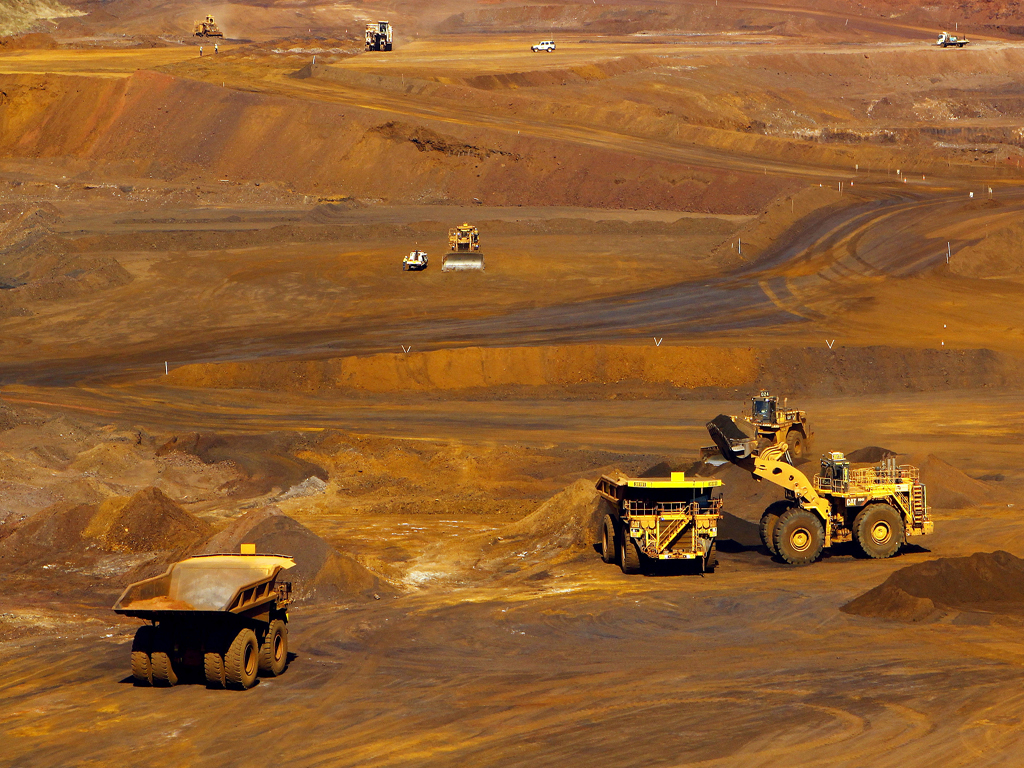 MANILA: China's iron ore prices scaled a fresh record on Monday as concerns over supply intensified, with stocks of the steelmaking ingredient at the country's ports shrinking and investors worried about another Brazil mine dam at risk of collapsing.
MANILA: China's iron ore prices scaled a fresh record on Monday as concerns over supply intensified, with stocks of the steelmaking ingredient at the country's ports shrinking and investors worried about another Brazil mine dam at risk of collapsing.
The most-traded iron ore contract on the Dalian Commodity Exchange hit limit-up, or the maximum amount by which the price may rise in one trading day, surging 6% to 771 yuan ($111.86) a tonne before the market closed. It ended 4.6% up at 761 yuan.
That was the benchmark's highest since the launch in 2013 of China's futures trading for one of its top imports.
Iron ore inventory at Chinese ports <SH-TOT-IRONINV> has slid further to the lowest since early 2017, latest data compiled by SteelHome consultancy showed.
Concerns about supply have also intensified after Vale recently told prosecutors in Brazil's state of Minas Gerais that a dam is at risk of rupturing at its Gongo Soco mine.
That mine is about 40 miles from where Vale's Brumadinho dam collapsed in late January, killing more than 230 people.
The Brumadinho dam disaster and subsequent mine and dam closures in Brazil had prompted Vale, the world's biggest iron ore miner, to slash its iron ore sales estimate for this year, pushing prices to record highs.
Dalian iron ore has risen close to 60% since the Brumadinho dam collapse.
Spot iron ore with 62% fines <SH-CCN-IRNOR62> jumped to the highest in five years on Friday at $103.50 a tonne, SteelHome data showed.
"Some big funds are trying to push iron ore prices further up," a Shanghai-based trader said, adding that some "speculative money" was seen flowing into the market.
Speculative trading continued even as "fundamentals do not support the current price levels," the trader said.
Brazil's mining secretary had said that the collapse of Vale's inactive Gongo Soco iron ore mine is inevitable, according to a note from ANZ on Monday.
Such warning raises concerns that Vale "will face further regulatory headwinds," ANZ said.
Iron ore's sizzling rally on Monday was in stark contrast to price declines for the rest of China's ferrous complex.
Among other steelmaking raw materials, coking coal ended down 1.1% at 1,388 yuan a tonne, while coke slipped 1.4% to 2,259 yuan.
China's imports of U.S. coking coal rose more than five times in April from a month earlier, customs data showed.
Steel prices also retreated after last week's gains, with the most-active construction steel rebar contract on the Shanghai Futures Exchange down 0.5% at 3,842 yuan a tonne.
Hot rolled coil edged down 0.8% to 3,666 yuan a tonne.
Concerns about oversupply of steel in China have emerged after improved profit margins encouraged steelmakers to ramp up output in recent days notwithstanding heightened environmental restrictions in major steel-producing hubs.























Comments
Comments are closed.